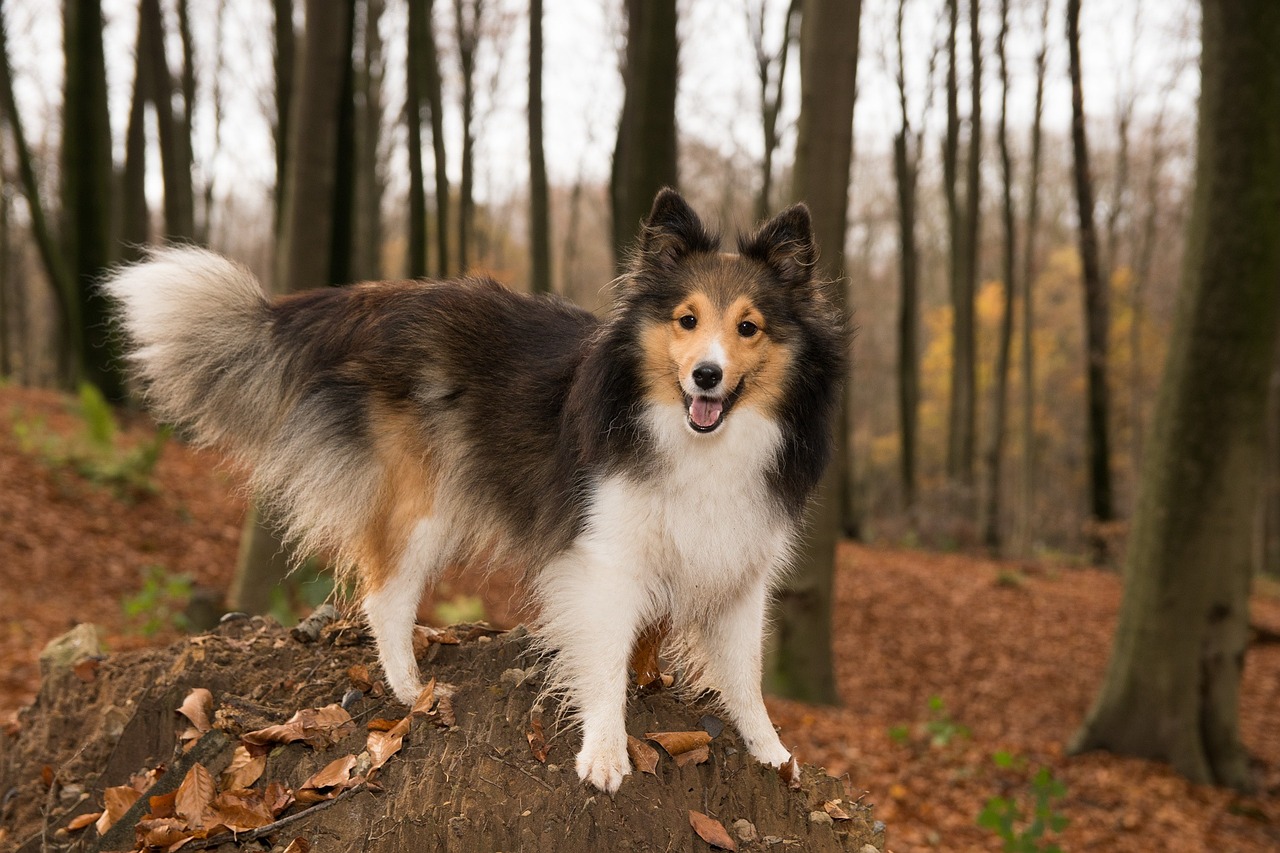Shetland Sheepdogs, affectionately known as Shelties, are a small, agile breed known for their intelligence, loyalty, and striking appearance. Originating from the Shetland Islands off the coast of Scotland, these dogs are accustomed to harsh, windy, and cold climates. This detailed article explores how well Shelties adapt to cold weather and offers comprehensive care tips to ensure their well-being during the winter months.
Shelties and Their Adaptation to Cold Climates
Shelties have a double coat, with a dense undercoat and a long, water-resistant outer coat, which provides excellent insulation against cold weather. This natural protection makes them well-suited for colder climates. Understanding their coat’s capabilities and maintenance is crucial in providing them with the right care during winter.
Cold Weather Tolerance in Shelties
While Shelties are naturally equipped to handle cold weather, extremely low temperatures and harsh winter conditions can still pose risks. It’s important to monitor their exposure to cold and provide additional warmth and shelter as needed.
Recognizing Signs of Cold Sensitivity in Shelties
Shelties may show signs of discomfort in cold weather, such as shivering or reluctance to go outside. These signs indicate that your Sheltie is feeling the cold and needs extra protection or a warmer environment.
Optimal Living Conditions for Shelties During Winter
Providing a warm and comfortable indoor environment is key to a Sheltie’s well-being in winter. Ensure they have a cozy bed in a draft-free area and maintain a stable indoor temperature to help them stay comfortable during colder months.
The Importance of Coat Care in Winter
Regular grooming is essential for maintaining the health and insulation properties of a Sheltie’s coat in winter. Brushing helps to prevent matting and ensures the coat remains clean and effective in providing warmth.
Outdoor Activity and Exercise in Cold Weather
Shelties need regular exercise for their physical and mental health, regardless of the weather. In cold weather, ensure they are adequately protected during outdoor activities and adjust the length and intensity of exercise based on the temperature.
Dietary Adjustments for Shelties in Winter
A Sheltie’s dietary needs may change slightly during colder months. If they are more active, an increase in calorie intake might be necessary to help maintain body heat. Monitor their weight and adjust food portions accordingly to maintain a healthy weight.
Indoor Comfort and Safety for Shelties in Winter
Ensuring indoor comfort for your Sheltie during winter is essential. Keep your home warm enough for them, provide a comfortable and insulated sleeping area, and ensure they have a quiet place to retreat from the cold.
Behavioral Changes in Shelties During Cold Weather
Owners might notice changes in their Shelties’ behavior in colder weather, such as seeking out warm areas or being less enthusiastic about going outside. Understanding and accommodating these changes is important for their overall comfort and happiness.
Conclusion: Caring for Your Sheltie in Cold Weather
Shelties, with their dense double coats, are generally well-equipped for cold weather. However, they still require thoughtful care during winter. By understanding their needs, providing appropriate coat care, and adjusting their living environment and exercise routine, owners can ensure their Shelties stay comfortable and healthy throughout the winter season.
Frequently Asked Questions About Shelties and the Climates They Thrive In

1. How Well Do Shelties Tolerate Cold Weather?
Shelties are well-suited to cold weather due to their thick double coats, which provide excellent insulation. Originating from the Shetland Islands, they are accustomed to windy and chilly conditions. However, extreme cold can still be a challenge, so it’s important to monitor outdoor time and provide a warm shelter.
2. Can Shelties Live Comfortably in Snowy Climates?
Shelties can live comfortably in snowy climates as their dense coat offers good protection against cold and snow. However, owners should ensure they have access to a warm and dry shelter, and their paws are protected from ice and deicing salts during walks.
3. Do Shelties Need Winter Clothing?
While Shelties have a natural coat that protects them against cold, in extremely harsh winter conditions, additional clothing like sweaters or jackets can provide extra warmth. This is particularly beneficial for older Shelties or those with health issues.
4. Are Shelties Prone to Any Cold Weather Health Issues?
Shelties are generally hardy in cold weather but can be susceptible to issues like frostbite in extreme cold, especially on their paws and ears. Owners should be cautious during very cold weather and limit their exposure to severe conditions.
5. What is the Ideal Indoor Temperature for Shelties in Winter?
The ideal indoor temperature for Shelties in winter is between 68-72°F (20-22°C). While they are comfortable in cooler temperatures, a warm indoor environment is important for their rest and overall well-being.
6. How Should Shelties Be Exercised in Cold Weather?
Shelties should continue to receive regular exercise in cold weather. However, the duration and intensity of outdoor activities might need to be adjusted based on temperature, with shorter sessions during extreme cold and more indoor play.
7. How Do Shelties Behave in Cold Weather?
In cold weather, Shelties may be more energetic and playful, enjoying the opportunity to play in the snow. However, they should still be monitored to ensure they don’t get too cold and have a warm place to retreat to.
8. Should Shelties Sleep Outdoors in Winter?
No, Shelties should not sleep outdoors in winter. Even with their thick coats, they require a warm, dry, and comfortable indoor space to protect them from the harsh winter elements.
9. Can Shelties Adapt to Different Climates?
Shelties can adapt to various climates, including both cold and moderate conditions. In warmer climates, they need access to shade, water, and air conditioning to prevent overheating due to their dense coats.
10. Are Shelties Good for Allergy Sufferers in Different Climates?
Shelties are not considered hypoallergenic and do shed, especially during seasonal changes. Their suitability for allergy sufferers can vary, and regular grooming can help manage shedding and allergens in the home environment.
 Toledo, United States.
Toledo, United States.
